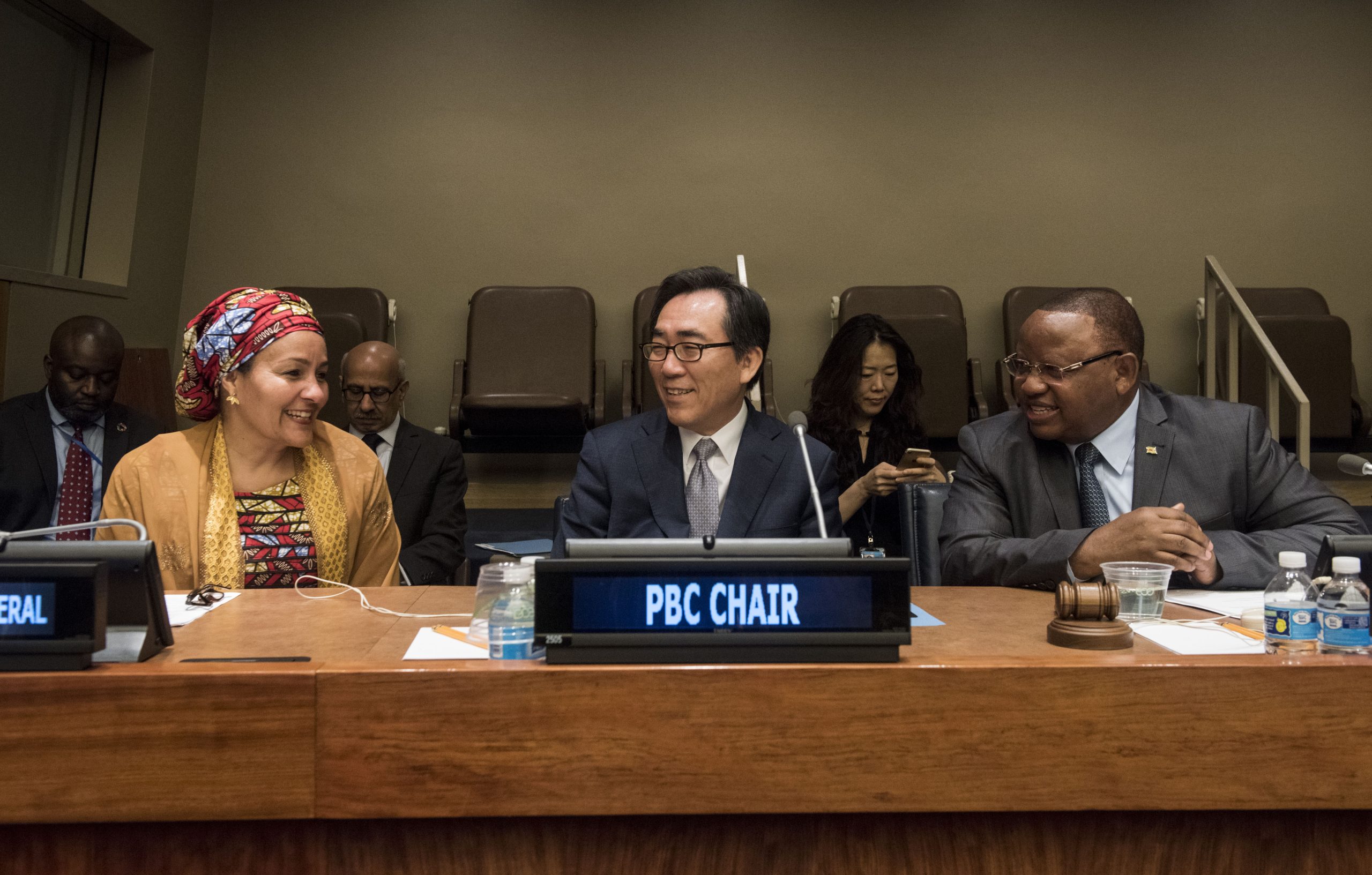The International Peace Institute (IPI) and the Quaker United Nations Office (QUNO), with support from the Peacebuilding Support Office (PBSO), convened a half-day workshop on March 16, 2018, to contribute to advancements in, and the ongoing work of, the Peacebuilding Commission (PBC) and its membership. The workshop, which included approximately forty participants, provided an off-the-record space for PBC members to continue to strengthen their understanding of peacebuilding, including best practices and lessons learned for policy development; identify strategies and opportunities to build upon progress made in the PBC; address new or ongoing challenges that impact the Commission’s work; and reflect on and identify the capacities needed to strengthen the PBC. The below key issues emerged from the discussion:
1. Peacebuilding must be informed by and maintain a focus on the field, measuring success by impact at the country or regional level. To support this goal, policymakers will benefit from a strengthened practical understanding of factors that foster peace and of how to translate this knowledge into policy and programming.
2. Progress in the PBC, combined with increased attention on the Commission’s work, has reaffirmed its relevance as the central UN body for peacebuilding and the potential of its unique convening power.
3. The PBC’s increasingly flexible working methods, particularly with regards to country situations, provide both opportunities and challenges for countries as they build peace.
4. Recognition of the peace and development nexus needs to result in greater coherence and coordination of peacebuilding policy across the UN system, which can in part be supported by work carried out by the PBC.
5. Sustained financing for short and long-term programming is critical in assisting states to build peace, and more initiative should be taken to explore innovative financing and partnership opportunities.
IPI and QUNO look forward to a continued partnership that will allow our organizations to provide further support to the PBC and its membership by holding a series of strategic and output driven discussions exploring the above-mentioned topics, among others. Our organizations will continue to work with UN and Member State stakeholders to develop and provide a forum for frank discussion on issues related to the PBC’s work, with a focus on innovative thinking, idea sharing and peer-to-peer learning.
See full meeting note here.
For more information, contact Megan Schmidt, UN Representative at the Quaker UN Office (MSchmidt@afsc.org).







